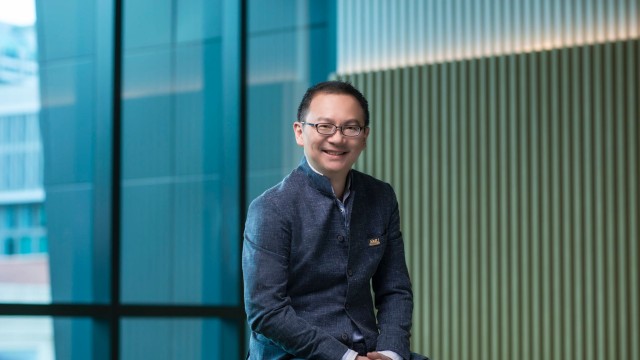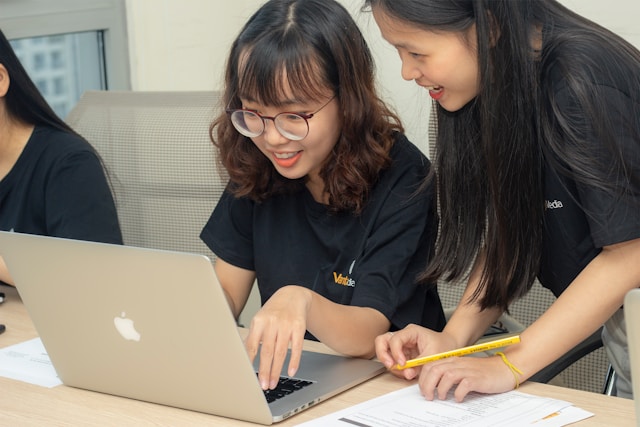
Why Pursuing a Master’s Might Be Prudent in a Time of Crisis
Pursuing a master's degree has many advantages - even during times of crisis. This blog post discusses how the advancement of one's education can enhance skills, broaden perspectives, and increase employability in uncertain job markets. It suggests that investing in a master's degree can be a prudent long-term strategy to navigate and thrive in challenging economic conditions.
Taking a break from work, choosing to further studies instead of entering the workforce, or juggling work and studies during trying times may seem like a risky play for ambitious corporate climbers during a time of crisis. However, going back to school could be a strong bet in an era of challenges.
The disruption to our routines since Feb 2020 has taken a toll on the mental and emotional health of many. These massive historical changes may lead to a shift in mindsets and a desire to re-prioritise goals and objectives.
And while it might seem counterintuitive to do a graduate degree during a downturn, Associate Provost (PGP Education) and Associate Professor of Accounting (Practice) at the SMU School of Accountancy, Dr Themin Suwardy, says that it is prudent to consider doing so.
The Economist even wrote that the number of MBA applications around the world had increased despite the pandemic. According to a recent annual global survey done by the industry body Graduate Management Admission Council, more than 300 business schools saw a 66 per cent increase in postgraduate programme applications.
Hence the age-old question: To do or not to do a postgraduate programme? “This is a classic dilemma that many face, and historically, it is true that when the economy is bad, people see that as an impetus to pursue a postgraduate programme,” says Themin.
According to Themin, there are two primary considerations when it comes to pursuing a postgraduate degree: opportunity costs versus skill upgrading.
He explains that in good times when one’s career is doing well, the opportunity costs of what one would have to give up – decent remuneration, promotion opportunities, business travels – to further one’s studies are usually very high. However, the opportunity costs will be a lot lower during a pandemic when the market has taken a downward turn; signing up for a postgraduate degree might be more enticing then.
This brings us to Themin’s next point: Building new skills for the upturn. “The underlying economic thinking is that there will always be ups and downs. And when you look at the economic cycle, nothing lasts forever in the same way. The idea is that if you’re able to do your postgraduate degree when the opportunity cost is low during the downturn, it will position you, armed and ready with new knowledge for the next upswing.”
Here are five reasons to embark on a postgraduate degree to invest in your personal development and expand your repertoire of skills:
#1 Future-proof yourself
Recent global disruptions have given rise to an increasingly complex business environment that demands new knowledge, skills and expertise. It also requires a new generation of leaders, entrepreneurs and professionals with relevant competencies to tackle fresh challenges.

“You can’t expect to go through your entire career without investing in new knowledge and learning new things."
Dr Themin Suwardy
Associate Provost (PGP Education) and Associate Professor of Accounting (Practice), SMU School of Accountancy
“You can’t expect to go through your entire career without investing in new knowledge and learning new things,” says Themin.
He adds that when seeking to upskill oneself, the focus should be on broadening and deepening an existing repertoire of skill adjacencies “so that the degree (in geometric terms) of your applicable field is larger than what you had originally trained for”.
#2 Make a career switch
The uncertain future that we face can also provide time to recalibrate. After all, when faced with a potential job loss or salary cut, it is worth considering all options available, including the possibility of switching careers.
“If you’re looking to change your field, embarking on a postgraduate programme can be seen as a magical opportunity that allows you to reset your life,” says Themin.
Realistically, many graduates often end up working in fields not related to what they studied at an undergraduate level. Thus, Themin shares that a graduate degree provides the relevant capabilities and credibility for making a professional switch, adding that “an intensive graduate degree lets you qualify and enter your new chosen industry, and at the same time bring your prior experience through”.
Themin does caution that one needs to be pragmatic when embarking on a postgraduate programme in pursuit of specialised career pivots. For instance, going from a non-accounting background to becoming an auditor would be a little tricky, as it involves going through an accredited programme and a traineeship, which takes at least three years.
#3 Climb the corporate ladder
It shouldn’t come as a surprise that a push factor for many to embark on a graduate degree is to climb the corporate ladder and boost one’s salary. For example, 80 per cent of SMU MBA graduates (Class of 2019) accepted new job offers within six months of graduation.
While a practical reason, Themin believes that these objectives should not be key push factors for joining a postgraduate programme. Instead, he suggests prioritising the following: critical areas covered in the curriculum relevant to one’s targeted career trajectory; the quality of a world-class faculty and their depth of experience, the profile of fellow students and their ability to lend diverse perspectives to areas of study. All these factors will help graduates climb the corporate ladder in some shape or form.
#4 Pursue lifelong learning
Besides equipping graduates with future-ready skill sets, postgraduate programmes also arm students with lifelong learning tools. For instance, through the Lifelong Learning programme at SMU’s Lee Kong Chian School of Business, SMU MBA and EMBA alumni are given opportunities to sit in for new electives to learn new skills and knowledge.
The SMU alumni chapter also promotes lifelong learning, which includes organising dynamic alumni activities like industry and networking nights and overseas market visits (pre-Covid-19). Themin adds, “Learning is a larger construct beyond the traditional coming back to class; there are a variety of ways to do it.”
#5 Embrace the present
While it is understandable that there are limited in-person interactions with your course-mates and professors during the pandemic, Themin adds that SMU is working tirelessly to ensure that there is a lot of flexibility in the way classes are being taught and carried out.
“Contact time will happen, but we will have to do it in a meaningful way,” he explains. In addition, he shares that as class sizes at SMU are generally small, with less than 50 people in each class most of the time, physical classes should be allowed to be conducted as long as safety measures are implemented and adhered to.
He also cites that Singapore is a very safe country that has handled the pandemic admirably. The government prioritises vaccinations for any citizen above the age of 12 and gives precedence to educational institutions to help ensure a safe environment for everyone. “The country’s leaders care about the wellbeing of the society and are committed to working towards bringing back some sense of normality. In turn, this will hopefully allow us to conduct classes in as natural a way as possible moving forward,” adds Themin.
Getting the most out of your Master’s programme
Themin agrees wholeheartedly with a 2020 McKinsey article, which states that when it comes to gaining an advantage in your career, the most fundamental skill is to keep learning intentionally.

“Intentional learning is deliberate learning, not accidental learning."
Dr Themin Suwardy
Associate Provost (PGP Education) and Associate Professor of Accounting (Practice), SMU School of Accountancy
“Intentional learning is deliberate learning, not accidental learning,” he explains. Adopting the five best-practice skills from the article, Themin illustrates how it aligns with what you can get out of your graduate degree.
- Setting goals: the end goal of any postgraduate programme is to finish your degree
- Protecting time for learning: scheduling time to attend lectures and classes and reading your course materials is protecting your time to gain new knowledge
- Actively seeking feedback: participating in class discussions, talking to your classmates and professors provides feedback on what you’ve been learning
- Conducting deliberate practice: doing your assignments or presentations equates to practising what you are learning
- Reflecting to evaluate progress: graded exams and assignments not only let you know how you are doing in the programme but also highlight your strengths and weaknesses
All these, says Themin, are ways to develop new skills to boost one’s personal and professional life, giving you that competitive edge in your career. “Intentional learning is one skill set that you’ll want to help you navigate the uncertain future and the changing world.” In short, pursuing a postgraduate programme is the best opportunity for structured, intentional learning.




